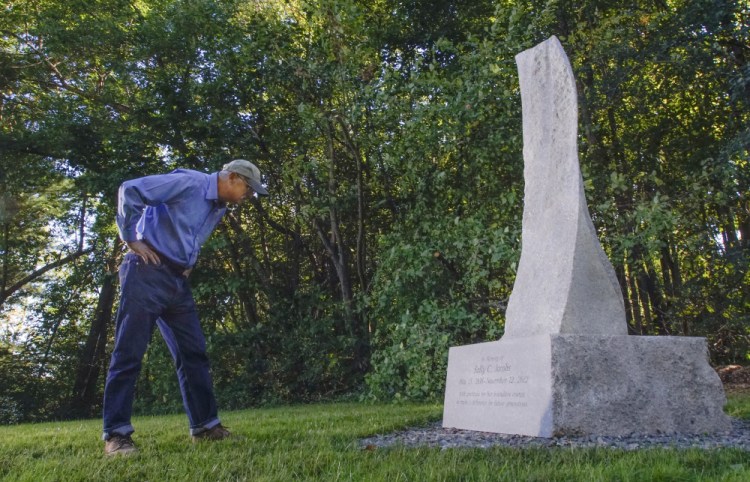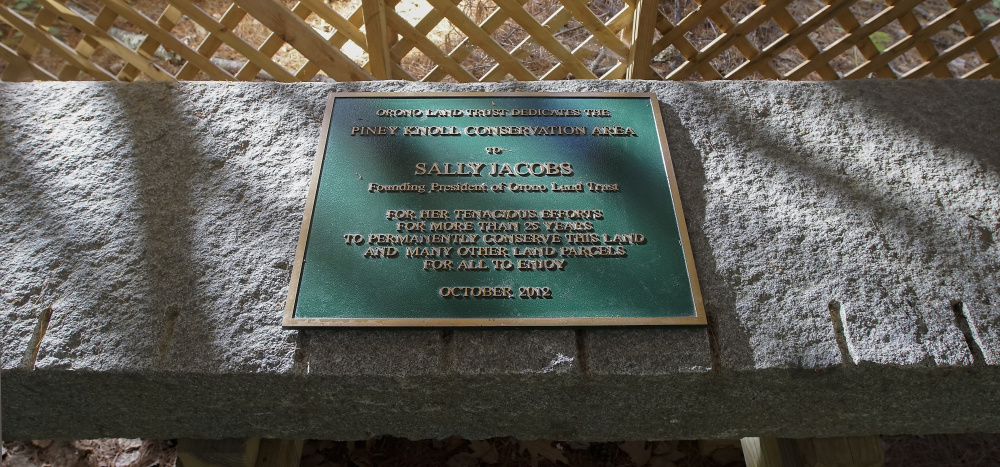Since the Orono Land Trust formed in 1986, it has protected more than 2,500 acres and built more than 15 miles of trails.
More impressive: This year it became one of the nation’s few all-volunteer land trusts to receive national accreditation.
Only 21 all-volunteer land trusts out of the 1,100 across the country are nationally accredited, said Elizabeth Ward, the Land Trust Alliance’s communications director.
The accreditation certification makes it easier for the trust to get grants and to engage in fund raising. The certification requires all land deals be reviewed by lawyers and proof that the land meets environmental standards.
Jerry Longcore, the Orono Land Trust’s accreditation chair and a board member for nearly 30 years, said it took the 300-member land trust 10 years to complete its accreditation. Those on the board didn’t mind the slow process. He said they only wanted it done right.
“In contrast to what people say, a land trust is a blue-collar organization. There are not a lot of wealthy people doing stuff in land trusts,” said Longcore, a retired wildlife biologist.
Over the past 30 years the land trust has protected and taken over the management responsibilities for such large parcels as the 75-acre forested Piney Knoll Conservation Area and the 55-acre Thibodeau property, which abuts Pushaw Lake.
The 19-member board in Orono still sees no reason to hire staff, Longcore said. They live in a community full of professors, researchers and biologists from UMaine.
“One of the things we look at is to bring on people who can serve in roles. Because of our location near the Orono campus, we have a lot of pretty talented people floating around here,” Longcore said. “We have a professor of wildlife, a professor of forestry, a lawyer, a former Rhodes scholar. We have a lot of experience that gives us breadth and talent. And we all are willing to buckle down.”
What Longcore brings is 30 years as a wildlife research biologist with the U.S. Fish and Wildlife Service. Now retired, he enjoys helping to protect land, knowing the wildlife that need open space and Orono residents will benefit.
“I don’t know what the future will be, but if we hired staff the next question would be, do we have a huge endowment to pay that?” Longcore said.”Right now we do not. And if we have money going out of the land trust every year for staff, then we are not conserving land.”
Send questions/comments to the editors.





Success. Please wait for the page to reload. If the page does not reload within 5 seconds, please refresh the page.
Enter your email and password to access comments.
Hi, to comment on stories you must . This profile is in addition to your subscription and website login.
Already have a commenting profile? .
Invalid username/password.
Please check your email to confirm and complete your registration.
Only subscribers are eligible to post comments. Please subscribe or login first for digital access. Here’s why.
Use the form below to reset your password. When you've submitted your account email, we will send an email with a reset code.